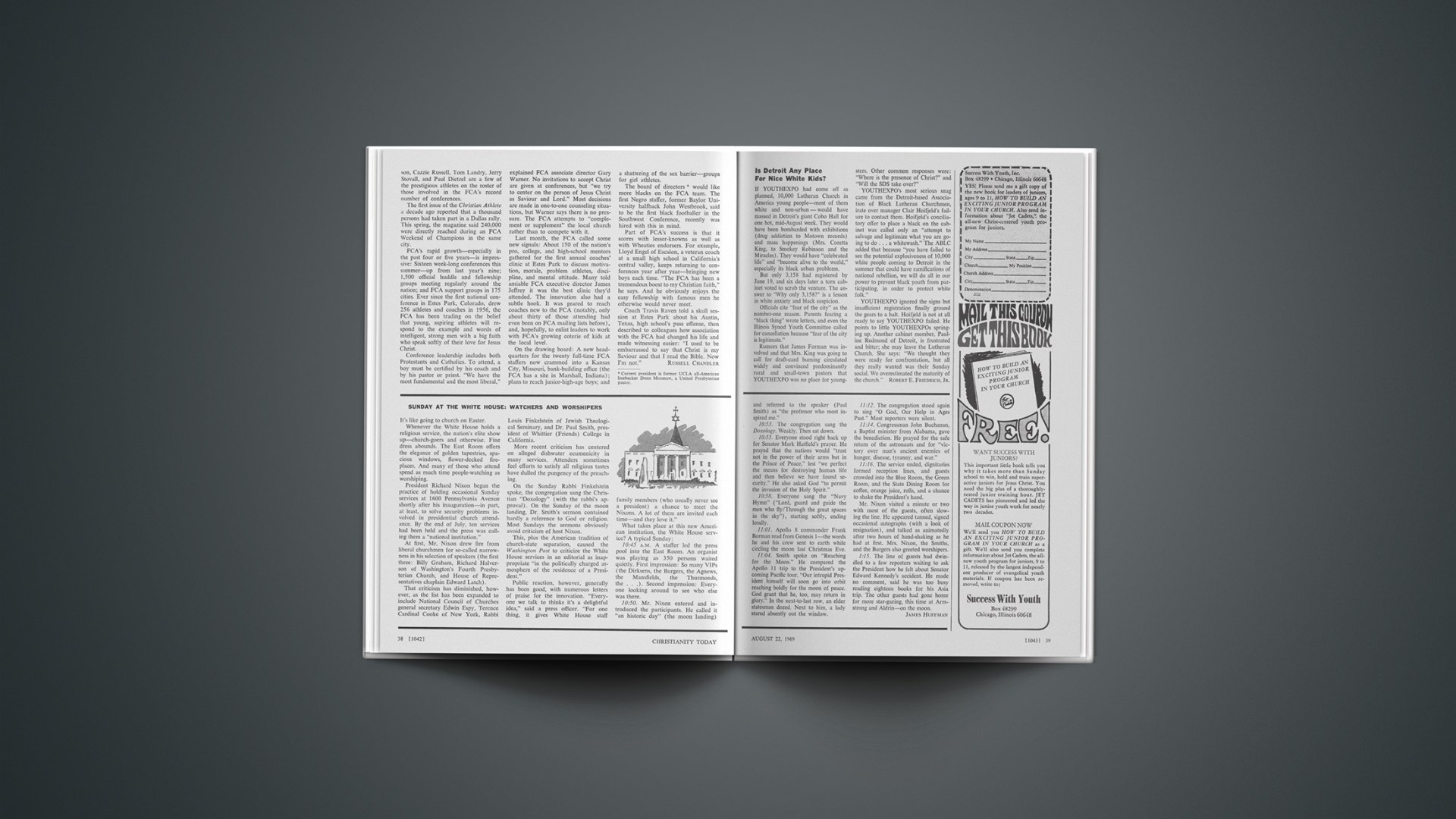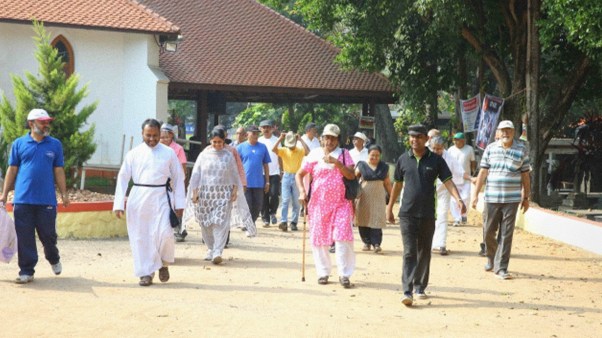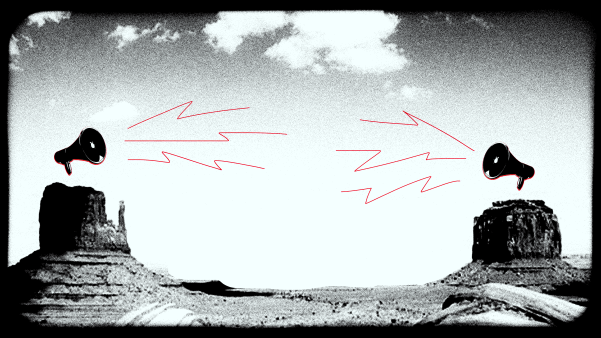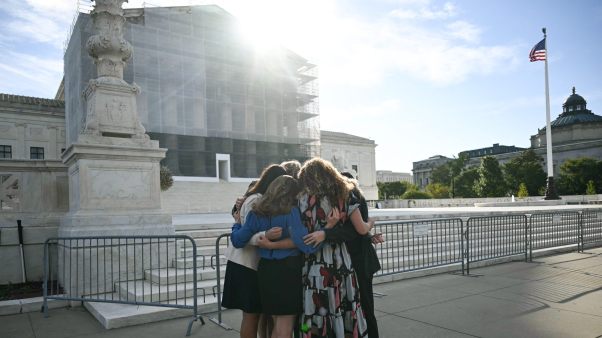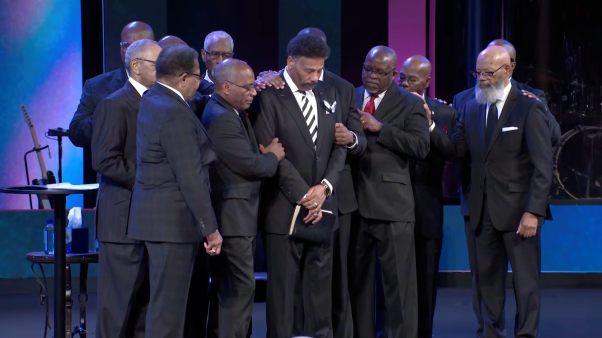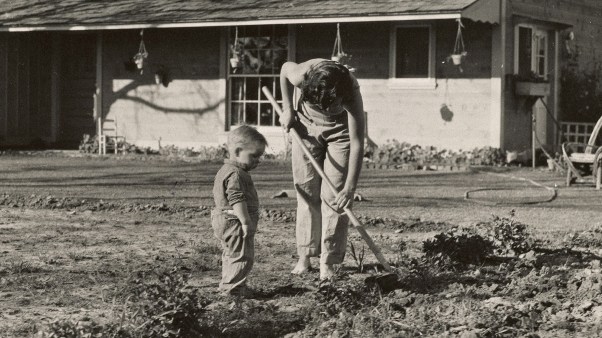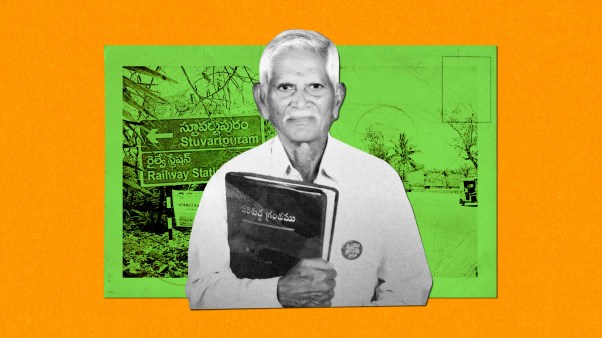They sang, “And we’ll guard each man’s dignity, And save each man’s pride.” But except for occasional appearances of husbands of one or two members, no men attended last month’s jubilee assembly of the American Association of Women Ministers. The group’s officers, chaplain, and speakers, as well as the American Baptist Assembly staff soloist and her accompanist, were women, and they conducted the meetings, preached, lectured, and passed resolutions without consulting men.
But they talked about men. “We must not rest content until ordained women have the assurance of equality in placement of service, without discrimination, along with men members of the clergy,” declared the president in her keynote address. “There can be no equality,” said the Rev. Marrietta Mansfield, “as long as the Church continues to permit a segregated ministry.” Inequality in the ministry, the Methodist from Cloverport, Kentucky, affirmed, is a major stumbling block to ecumenicity and the effectiveness of the Church.
The ladies talked of men who reject ordination of women and men who accept it. “Even a great theologian can have some strange ideas,” said Dr. Georgia Harkness, referring to Karl Barth’s belief that women are subordinate to men by creation but equal in sin and in openness to salvation. The Methodist theologian and author told also of a clergyman who refuted the claim that women should not be ordained because Jesus chose no female disciples. “On that reasoning we would need one Judas among every twelve ministers,” he said.
The first American woman to be appointed a district superintendent of the United Methodist Church also talked of men—the forty-five who serve churches in her northern Maine district. The Rev. Margaret Henrichsen finds that men talk easily to her, perhaps more easily than to other men.
Mrs. Henrichsen, who entered the ministry after her husband died in 1943, told the AAWM members she had accepted their invitation with reservations. An organization for women ministers, she had believed, was “about as necessary as one for red-headed ministers.” But she later changed her mind and joined, an announcement that was greeted with applause and was followed by her election to the board of trustees.
She admonished the clergywomen to be “real, reverent, and revolutionary.” “Get into the world we’re in,” she urged, “not the world of Madeline Southard or even the world we knew ten years ago.”
The Rev. M. Madeline Southard, who was named frequently during the four-day convention at Green Lake, Wisconsin, had founded the association fifty years earlier, one year before the Nineteenth Amendment allowed women to vote. Today the organization has grown from eleven members to more than 300.
The diversity of ministries among the fifty clergywomen and guests who met at the American Baptist Assembly grounds was demonstrated in a panel that included an evangelist, the Rev. Victoria Booth Demarest, grand-daughter of the Salvation Army’s founder; an associate minister of the Iowa Conference of the Disciples of Christ, the Rev. Mary Ellen La Rue; an administrator of Chicago’s Urban Training Center, the Rev. Peggy Way; as well as rural, suburban, and inner-city ministers.
Despite that diversity, there was little division at the integrated, interdenominational assembly with its theme, “A Diversified Ministry to Unite a Divided World.” The generation gap was almost nonexistent; but then there were only two students present.
At the close of the conference, the women didn’t want to stop sharing stories of their ministries and encouraging one another. Finally, as they stood in a circle for communion, the Rev. Hilda Ives, a retired pastor and seminary professor, asked each one to talk about a man—Jesus Christ. A German student at a U. S. seminary recalled Jesus’ forgiveness—as demonstrated by the Dutch woman with whom she had shared a room during the convention. The Rev. J. A. Ader Appels, who operates a community center in the Netherlands, was widowed when Germans killed her husband during World War II.
JANET ROHLER

